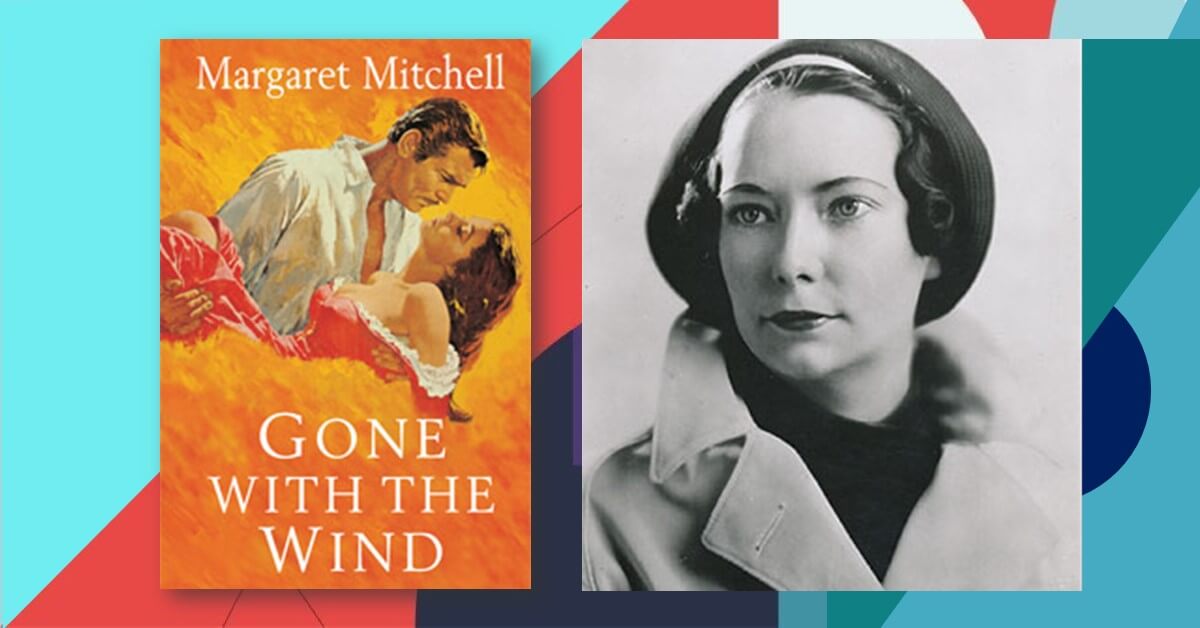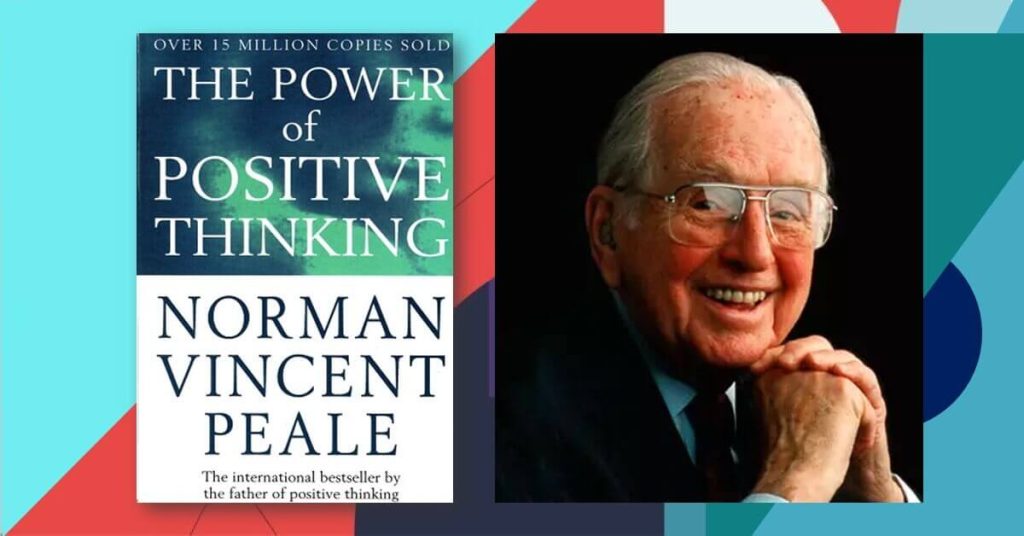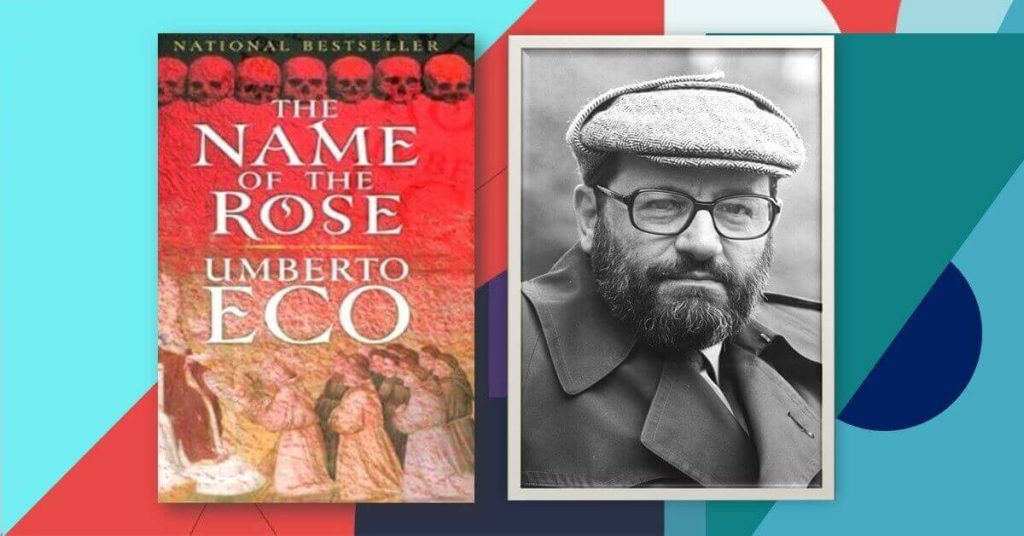Last updated on September 23rd, 2024 at 07:07 pm
Gone With the Wind book by American novelist Margaret Mitchell is one of the finest novels set in the American Civil War.
Along with the Civil War history, Mitchell deeply depicts the scenario of negro-life at a time when the South’s cotton plantation was at its peak when the North was fighting for Negro freedom. The story of the history revolves around the life and struggle of a pampered and beautiful daughter of a wealthy family with a lavish lifestyle, Scarlett, who falls in love with a man, Ashley Wilkes, who had been married to another woman.
Apart from their unrequited love story, Margeret shows why Scarlett selfishly married multiple times for multiple reasons, and why the contemporary idea of the history of American slavery is one-sided, biased, partial, discriminating against the White people, and demands a revision and a new perspective and angle for the true picture.
Because of Margeret Mitchel’s unlikely and unpopular views on slavery, some black Americans objected to the book and a group of Black Americans in Pittsburgh told the director of Gone With With the Wind (1937) that, ” We consider this work to be a glorification of the old rotten, system of slavery, propaganda for race hatred, and incitement of lynching”.
The book was banned in 1978 in Anaheim, California and was challenged in Waukegan, Illinois in 1984 and the Nasi Germany banned it as well, because, to some people, it does not show the evil of slavery and barely talks about the anti-slavery North.
Even though the novel is primarily based on a triangular love story between a Southern girl, Scarlett, and a gentleman Ashley Wilkes and a wartime charming mercenary and speculator Captain Rhett Butler, it champions feministic ideals, the Darwinian concept of the survival of the fittest, the human longing for the old days, old times and native land, the condition of negro people, the Civil War atrocity, the post-war Reconstruction and the precondition for the rise of Ku Klux Klan.
Gone With the Wind book: bitter truth of racism
We get to know from Gone With The Wind how Georgian cotton planters depended on buying and selling negroes for field and household use.
As the Civil War broke with the separation of 11 Confederate States–South Carolina, Mississippi, Florida, Alabama, Georgia, Louisiana, Texas, Virginia, Arkansas, Tennessee and North Carolina–from the Union, the South defended the system of slavery while the North wanted its abolition. Because the Southerners had nothing but cotton plantations, and without slaves, the South’s cotton industry would collapse.
Between 46,000 and 51,000 men lost their lives in that three-day battle. But the fight was not over. In November 1863, President Abraham Lincoln spoke in Gettysburg and gave new meaning to the fight. It was no longer a fight to keep all of the states together, but it was a fight to make people free. It became a fight to free the slaves. In four years of war, millions of Americans died.
Gone With The Wind is basically about Southerners’ struggle to maintain their culture, homeland, cotton plantation and political rights. The novel unfolds a romantic struggle between Georgian clan-centric families as well. The protagonist of the novel, Scarlett O’Hara, who wanted to be the centre of attention and liked partiers and was flirtatious, from a family with an Irish ancestry that owned a large cotton plantation, Tara, fell in love with a cultured gentleman Ashley Wilkes, whom she thought there was no man like him. The Wilkes owned a plantation afar from the O’Haras, the Twelve Oaks.
Before the war broke, Scarlett went to the Twelve Oaks for a barbecue party to confess her love to Ashley, but terribly saddened to hear that his family had been arranging his marriage with one of his cousins, Melanie Hamilton, who lives in Atlanta.
Aggrieved by the news and Ashley’s agreement to the marriage, Scarlett hurriedly proposed to Charles Hamilton to marry her as soon as possible as a form of revenge on Ashley.
Charles was Melanie’s brother who went to the party. However, at sixteen and within two weeks Scarlett married Charles and in two months of their marriage, she became a window. Charles died in Virginia from measles during his deployment.
In the meantime, when Scarlett travelled to Atlanta with her son Wade and dedicated her time to the nursing of wounded soldiers in the Confederate camp. But as the Union troops approached Atlanta and the townsmen fled to the refugee camp in Macon, and before they besieged the city one night Scarlett decided to leave Atlanta to Tara in Georgia with Melanie, her newborn son, Wade in a carriage arranged by Rhett Butler. Rhett Butler, a wartime speculator, who was trying to earn her love, helped them to leave Atlanta. In the dark of the night and blazing Atlanta, Rhett expressed his love for her and kissed her before he left them on their own.
Escaping the Yankee soldiers’ sight, when they reached Georgia, Scarlett was shattered to witness the Yankee atrocities on Georgian people and their livelihood. They burned down most of the houses, ablaze cotton, and killed or looted the livestock and valuables. While approaching home she wondered “was Tara also gone with the wind which had swept through Georgia?”
But Tara was spared because of a kind Yankee captain who camped there during the siege. Their ways of living were destroyed. The field had workers left. Nothing was left for them to eat.
Therefore, Scarlett who was the centre of attention and would always be surrounded by lovers around her had to work in the field growing food alongside the slaves. She had to do the men’s work and menial jobs. They had to face starvation. Scarlett’s slaves stole food to make themselves alive. To Scarlett’s relief, Ashley, her lover returned to Tara.
The period after the Civil War brought unprecedented upshots with the Reconstruction era. The scourge of war had been followed by the worse scourge of Reconstruction, said Margaret. The Southern states returned to the US and laws were passed that gave the right to African Americans. American military forces controlled Southerners’ daily affairs. Slavery was made illegal. White Southerners were upset by Republican practices. Negroes became free and lawless which compelled some Southerners and former Confederate soldiers to become Ku Klux Klan to protect their women and property from negro brutality.
However, with Confederate soldiers’ surrender ended the war in April of 1965. The conquerors unleashed new forms of oppression and atrocities against the Southerners.
The people who sympathised with the Confederates and Democrats were barred from voting as the negro slaves were freed and were given the privilege of voting with the help of Republicans. Scarlett was informed that if she failed to pay the tax for the land, they will face a sudden confiscation and be evicted from Tara. Tara will be gone if three dollars could not be paid.
Having no option to get the money, Scarlett thought of Rhett Butler who made millions of dollars and was in Union camp jail in Atlanta.
She thought of gaining the money at any cost, even if she had to seduce him with her beauty or promise to marry him and promise herself to him as collateral. But Rhett understood her scheme and disappointed her when she met him in jail in the guise of his sister.
He did not give her the money because if he had given any, the Yankee soldiers would have confirmed that he possessed the Confederate money they were looking for and put him in jail for denying having the money and killing a negro for insulting a woman. But he managed to get out using the power of one powerful friend in the Union.
On her way back to Aunt Pitty’s house afoot she met with Frank Kennedy who was betrothed to Scarlett’s sister Suellen. Returned from the war he was making a few bucks with his newly set up store. When she heard that Frank had money, she seduced him and told him that Suellen is going to marry someone else. She was able to send tax money to Tara after she had married Frank. However, she borrowed money from Rhett to buy a sawmill.
Because of her business acumen, she was able to buy another mill and set up a saloon.
But Frank died in the dark of the night when along with Ashley, went to kill the negroes who tried to rape Scarlett on the night. Like many others, Ashley and Frank joined Ku Klux Klan. Barely after a year of Frank’s death, Scarlett married an unscrupulous, ruthless, speculator, a friend of Republicans, and the most hated person by Confederate supporters Captain Rhett Butler for his rich, and security.
Because she was so afraid of starvation and financial insecurity, she was ready to do anything that old-fashioned society and old Georgian norms did not permit. She wanted to shame her old friends who cared about catholic discipline and cultural values by being rich.
Even when she was bound by marriage with Charles and Frank and Rhett Butler, she always kept herself occupied with Ashley. Though married to Melanie, Scarlett always longed for Ashley. With any pretext, she always tried to be with him, beside him, talk to him, and stare at him to express her love and desperation for his love.
She even appointed him as a manager of one of her mills, so she can always see him. She would frequently run to him. She was even caught in an intimate situation with Ashley in the mill when she was Rhett’s wife. Though Rhett knew, Melanie did not want to believe it and dismissed it as a jealous rumour of India, Ashley’s sister.
Because of her passion for Ashley, Rhett’s love for her diminished over time. He rather kept himself busy with his daughter, Bonnie. When Rhett realised that after everything he had done for her he was unable to change her mind regarding Ashley, he started ignoring her. Scarlett was saving herself and her beauty for Ashley But that hope of Rhett was also gone when Bonnie died by falling off her pony Rhett. He was so broken that he refused her funeral for four days.
But when Ashley’s wife Melanie died everything changed. Now that she is free to marry her life-long lover Ashley and divorce Rhett, she, all of a sudden found that she no longer loves Ashley. In the face of Ashley’s reality that he did not love her was understood by Scarlett. She realised that he had always been Melanie’s. She realised her mistake to love him for years. “He never really existed at all, except in my imagination,” she thought wearily. “I loved something I made up, something that’s just as dead as Melanie is. I made a pretty suit of clothes and fell in love with it.
And when Ashley came riding along, so handsome, so different, I put that suit on him and made him wear it whether it fitted him or not. And I wouldn’t see what he really was. I kept on loving the pretty clothes–and not him at all.”
Scarlett did not like that Ashley, a man who is unable of self-governing, honourable and kind, is at her mercy now after Melanie’s death. She can now marry him divorcing Rhett. If she had ever had him at her mercy, seen him grown passionate, importunate, jealous, sulky, pleading, like the other boys, the wild infatuation which had possessed her would have passed, blowing away as lightly as mist before sunshine and light wind when she met a new man. Scarlett’s realisation came, “What a fool I’ve been, and now I’ve got to pay for it what I’ve wished for so often has happened. I’ve wished Melanie was dead so I could have him.
And now she’s dead and I’ve got him and I don’t want him. His damned honour will make him ask me if I want to divorce Rhett and marry him. Marry him? I wouldn’t have him on a silver platter!
“But, just the same I’ve got him round my neck for the rest of my life. As long as I live I’ll have to look after him and see that he doesn’t starve and that people don’t hurt his feelings. He’ll be just another child, clinging to my skirts. I’ve lost my lover and I’ve got another child.”
She rationalised that even though she is free to marry Ashley but she won’t. Suddenly she understood Rhett’s love for her. She loved Rhett now more than anything. She realised her mistake of ignoring him because of Ashley. She thought it must be now to let Rhett know that she loves him.
But when she approached Rhett, he got to know that something must have made her realise Ashley is a Dead Sea Fruit—full of promise but in reality, nothing. He refused her proposition of self-realisation, rather he said, “It just doesn’t interest me. I’m going to hunt in old towns and old countries where some of the old times must still linger. I’m that sentimental. Atlanta’s too raw for me, too new.”
With the spirit of her people who would not know defeat, even when it stared them in the face, she raised her chin. She could get Rhett back. She knew she could. There had never been a man she couldn’t get, once she set her mind upon him. “I’ll think of it all tomorrow, at Tara. I can stand it then. Tomorrow, I’ll think of some way to get him back. After all, tomorrow is another day.”
Vital Observations: Gone With The Wind
Gone With The Wind presents not only Scarlett’s love for Ashley who does not want her mind, and Rhett Butler’s love for her, who does not value her body but her mind, and does not mind her physical infidelity.
Rhett waited and saw how selfish she was with her marriages and in the battles for survival. He fell in love with her when she was sixteen and married Charles out of desperation, and waited till her second husband Frank had died. But to her, all through the time of the siege, fall, surrender of the Confederacy, deaths, destruction of livelihood, piercing criticism of closed ones, starvation and hard work, Ashley was her centre of the universe.
Whatever she did throughout the war it was either for Ashley’s sake or for her homeland, her beloved red-soiled plantation, Tara. She was ready to do anything to save Tara. Because she knew in its soil remains life. Away from Tara, she felt rootless, suffocated, lifeless, loveless, helpless, airless and spaceless. Her devotion to and longing for Tara made me extensively nostalgic as if in homeland lays all the comforts, contentment and peace where our old days had passed.
No place in the world is like the place where we were born and brought up to be men.
After the fall of the South when people’s livelihood became scarce, Scarlett and her family members were on the verge of starvation. A household slave stole food for them to sustain themselves. Since then, Scarlett did anything possible to keep food in her stomach. She felt the fang and the pain of starvation and not getting the food she wanted. The pain and feeling of hunger are terrible.
It’s a silent disease that cannot to expressed and made others feel. Not having anything to eat in a world full of subsistence is the greatest injustice and horror to human beings. The helplessness of starvation is severe. Lack of food and not having enough to eat and starvation is the greatest fear. I can feel it because I had to starve on several occasions.
Scarlett’s greatest fear was starvation and a feeling of powerlessness. She told to Rhett, “You can’t know! We’ve never had enough to eat and it’s terrible to wake up hungry and go to sleep hungry. And we haven’t any warm clothes and the children are always cold and sick….”. In everything, she always tried to avoid the incidence of starvation and made sure that she had food in her stomach and money to wield power.
Read also: To Kill a Mockingbird
Margaret Mitchell very accurately upheld the feministic fervour of a time when it was expected badly considering the circumstances. Scarlett’s sense of responsibility drove her to take advantage of anything that came her way, regardless of social or individual virtues, when virtue was merely a matter of price. She thought she would show her virtue when there is enough to eat and enough to be generous. The fact that she made herself a successful but ruthless businesswoman was totally contrary to the prevailing notion of her society.
She braved herself to do the tasks were meant for men. Without the presence of an active and productive man, Scarlett carried on jobs which were never meant for women. She argued that there are things that women are equally capable of doing.
Gone With The Wind gives us a picture of the pre and post-war conditions of negro life. It puts us in the perspective of whether negroes were mistreated by the Southern whites, or whether their Emancipation, in fact, did any good to them. Emancipation of the slaves was a Northern idea. We observe that many household negroes enjoyed working under their masters and felt secured. When the South fell, they stayed with their masters and remained with them half-fed or hungry, while some died. They did not want to leave even when they were told to by their masters, and some others who left to enjoy freedom returned to their masters.
On the contrary, negroes who left their masters to be freed from slavery became reckless, raped women.
Mitchell puts it, “freedom became a never-ending picnic, a barbecue every day of the week, a carnival of idleness and theft and insolence. Country negroes flocked into the cities, leaving the rural districts without labour to make the crops. Atlanta was crowded with them and still they came by the hundreds, lazy and dangerous as a result of the new doctrines being taught them.
Packed into squalid cabins, smallpox, typhoid and tuberculosis broke out among them.
Accustomed to the care of their mistresses when they were ill in slave days, they did not know how to nurse themselves or their sick. Relying upon their masters in the old days to care for their aged and their babies, they now had no sense of responsibility for their helplessness.
Abandoned negro children ran like frightened animals about the town until kind-hearted white people took them into their kitchens to raise. Aged country darkies, deserted by their children, bewildered and panic-stricken in the bustling town, sat on the curbs and cried to the ladies who passed: “Mistis, please Ma’m, write mah old Marster down in Fayette County dat Ah’s up hyah. He’ll come tek dis ole nigger home agin. ‘Fo’ Gawd, Ah done got nuff of dis freedom!” (Mrs, please Mam, write my old masters down in Fayette Country that I am up here. He will come to take this old nigger home again. For God, I have had enough of this freedom).
However, some cultural expectations of 19th-century women were as appalling as today. Early marriage of women as young as 16, considering women over twenty unmarriageable, having nice legs, slander hands and feet, seventeen-inch waist, gentle but appealing, weak creatures. Rhett always believed that people like Ashley who always cares about honour, kindness, and books and could not adapt to change must not live. People need to embrace the change, change the colours, and take advantage of the situation ruthlessly to survive in a hostile and changed world.
Conclusion
My journey with Gone With The Wind was a little wobbly, but certainly, it is a great work to spend or invest my time.
Mitchell’s in-depth analysis of human life and daily affairs were breathtakingly wonderful. Numerous phrasal verbs, idioms, sayings and wonderful syntaxes make it a little slow reading. She understood human life in a complete sense and the Civil War. I felt like I was reading a history book on American Civil War.
It presents clarity on cotton plantations, the value of the cotton-producing red soil of Georgia, the Civil War, Confederate fighting with the Union troops, the period of Reconstruction of the South, the rise of Ku Klux Klan, the emancipation of African Americans and Southern whites’ hatred to Northerners or Yankees. But some may find Afro-American accented conversations of negros difficult to understand.
However, Gone with the Wind is a Pulitzer Prize-winning and one of the best-selling books, an American beloved novel of all time with an epic love story, an unrequited in fact, of the American Civil War which I think a must-read literary masterpiece for all.
About the author
Margaret Mitchell was born in Atlanta, Georgia on 8 November 1900. Her father was president of the Atlanta Historical Society.
All the family members were interested in American history and grew up in an atmosphere of stories about the Civil War. As a child, she enjoyed writing and telling stories at an early age. She worked for a time on the Atlanta Journal.
She was educated at Washington Seminary, Massachusetts, where Margaret went to Smith College. Margaret decided to leave college and stay at home to look after her father. Her first marriage, in 1922, was a very unhappy one and did not last. Her husband was in some ways like Rhett Butler, and some people think that she was thinking of him when she wrote her book in later years.
In July 1925, she married John Marsh, a friend of her first husband. In the following ten years, she put the stories she heard from the survivors of war or her grandmother, on paper. After she broke a bone in her lower leg in 1926, John made a suggestion to her: he thought she should spend her time writing a book. She did, and the result was Gone with the Wind. It took her ten years to finish it, and she did not think it was very good.
Gone with the Wind was the only book Margaret Mitchell wrote.
When she died on 16 August 1949, killed by a speeding taxi, the people of Atlanta lost a valuable member of their city. The book was first published in 1936.






